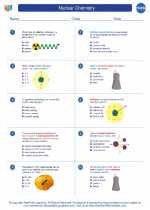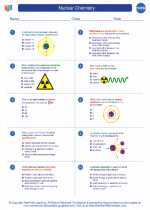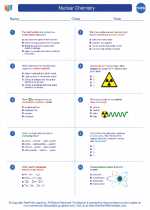Domain in Chemistry
In chemistry, the term "domain" often refers to the different areas or aspects of the subject that are studied. These domains can include various branches of chemistry, such as organic chemistry, inorganic chemistry, physical chemistry, analytical chemistry, and biochemistry.Study Guide for Understanding Domains in Chemistry
1. Organic Chemistry: This domain focuses on the study of compounds containing carbon. It includes the structure, properties, composition, reactions, and synthesis of carbon-containing compounds.
2. Inorganic Chemistry: In this domain, the study is focused on compounds that do not contain carbon-hydrogen (C-H) bonds. It includes the study of metals, minerals, and other non-carbon-based compounds.
3. Physical Chemistry: This domain deals with the study of the physical and fundamental principles that govern the behavior of matter. It includes thermodynamics, kinetics, quantum mechanics, and spectroscopy.
4. Analytical Chemistry: This domain involves the qualitative and quantitative analysis of substances to determine their composition, structure, and properties. It includes techniques such as chromatography, spectroscopy, and electrochemistry.
5. Biochemistry: In this domain, the focus is on the chemical processes and substances that occur within living organisms. It includes the study of proteins, enzymes, nucleic acids, and metabolism.
Understanding the different domains of chemistry is essential for gaining a comprehensive knowledge of the subject and its various applications in the real world.
By mastering the concepts within each domain, students can develop a strong foundation in chemistry and prepare themselves for advanced study or careers in fields such as medicine, engineering, environmental science, and materials science.
.◂Chemistry Worksheets and Study Guides High School. Nuclear Chemistry

 Worksheet/Answer key
Worksheet/Answer key
 Worksheet/Answer key
Worksheet/Answer key
